Can Fish Eat Watermelon? (Dangerous or Safe?)
Fish eat various foods, such as insects, pellets, flakes, meaty foods, veggies, and fruits. People usually consume watermelon, and many fishkeepers want o to share their food with their pet fish. Can fish eat watermelon?
Fish can eat watermelon as it contains some essential nutrients required for health of the fish. Also, watermelon brings variety to their regular diet. Feeding watermelon to fish is a nice idea to let them enjoy some juicy taste of this fruit.
Is Watermelon Safe For Fish?
Yes, watermelon is the safe and healthiest fruit for fish to eat. From a nutritional point of view, Calcium, vitamin A, potassium, magnesium, vitamin B(B1, B5, B6), carotenoids, and lycopene are all present.
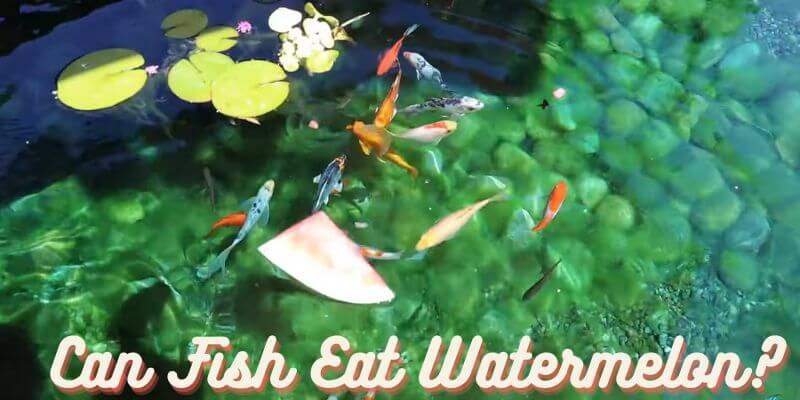
Additionally, it can control blood flow and avoid heart attacks. The risk of elevated cholesterol in them can be reduced with lycopene.
Nitric oxide can be produced by the substance citrulline in the body, which aids in blood vessel expansion.
Moreover, it is important to find the sort of fish, whether they are carnivores, herbivores, or omnivores, before giving them watermelon, as fish can only be fed and enjoy eating fruits if they are herbivorous or omnivorous.
Additionally, it would be advisable for you to take extra care when you intend to give them watermelon, particularly about how you do so.
Also, make sure to remove all the leftovers from the tank to avoid any mess and contamination of water.
Can Freshwater Fish Eat Watermelon?
Freshwater fish have specific dietary needs as well. They need healthy food fortified with all the necessary vitamins and minerals. Watermelon is also one of the fruits that freshwater fish eat.
Carbohydrates, proteins, fats, and all minerals are all part of a healthy, well-balanced diet. Eating watermelon is quite beneficial for them to support their health and diet.
They receive many health advantages from watermelon, which improves their growth and development.
Depending on what they eat, freshwater fish fall into various types. Some of them feed only on tiny invertebrates, fish flakes, fruits, and vegetables.
How To Feed Fish Watermelon?
To help you to make a better meal for fish, I’ll go over a few of the methods you can feed fish watermelon.
Remove Outer Skin
Start by choosing a watermelon that is fresh and fully ripe. After that, remove the hard outer skin. Because hard skin is more difficult to digest, remove all of it thoroughly.
Serving Smaller Portions
Then, take a small piece off and scoop out all the seeds. Slice this portion into one-inch pieces after that. Pick two or three pieces, and then place them in the tank.
Feed Watermelon Paste
Watermelon paste is easy to eat as well as digest. It’s a perfect and simple meal to give to your fish. Just a blender and a knife are needed to make the paste.
Peel the watermelon’s pretty hard skin using a sharp knife. Water and watermelon chunks should be added to a blender, and the mixture should be blended on a medium speed until it forms a paste.
The paste should then be taken out of the blender and put in a bowl. And it is all ready to be the meal of your fish.
Include It In Other Foods
Bring a bowl. Please pick up a few pieces of dry food, then add them to the container. Peel the skin from a tiny piece of watermelon that you have chosen.
Take out every seed. After that, chop it up and put it in the bowl with the dried food. Finally, you can give it to the fish in the tank.
How Often & How Much To Feed Watermelon To Fish?
The proper growth of fish depends on the high concentration of vital nutrients and vitamins found in foods. Pellets, flakes, fruits, and vegetables are also part of their diet, all of which are essential for a healthy metabolism.
So, to provide your fish with a balanced and healthy diet, feed them watermelon twice a week. However, keep in mind not to give them extra food than they need.
Moreover, watermelon also contains a lot of water, and your fish will suffer from drinking too much of it.
If you feed them more than that, they might consume more sugar. Consuming too much sugar can make them more likely to get severe conditions.
A fish’s feeding schedule varies depending on its species. Other species are treated differently and in different amounts.
They enjoy eating two to three times daily. The amount is figured out by how hungry they are. Some of them can eat for 5 minutes on average.
Some of them continue to eat even after the meal has been placed in front of them. Always give them food so they can digest it quickly during the day.
The residues should all be cleaned up after that. Never give them too much food. Watermelon is a rare pleasure when it comes to fruit.
You are only allowed to feed once or twice per week. Feed them in little portions around 1 to 2 inches in size.
Will Fish Eat Watermelon Rind?
Never give watermelon rind to fish. There are several causes behind that. First of all, they are unable to consume it thoroughly.
Even the rind pieces are problematic to chew and may potentially put someone at risk of choking or impaction. Both of these disorders can be caused by these conditions.
It is accompanied by abdominal discomfort, bloating, and other GIT dysfunctions. Second, the watermelon’s skin includes a lot of chemicals or pesticides.
These substances are poisonous and can result in death. Pesticides are also absorbed into the skin.
When growing them, the growers use pesticides or chemicals to apply. All of these pollutants can harm the health of fish.
Final Thought
Feeding watermelon to fish is not bad as it provides variety to their regular diet, and they may get bored of the regular diet. Also, fish can eat watermelon without hesitation.
Keep a few things in mind: you can feed them watermelon in moderate amounts and do not exceed the frequency of feeding them watermelon as they require other foods to fulfill their nutrition requirements.
Related Posts

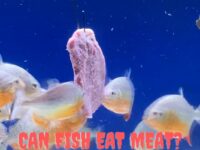








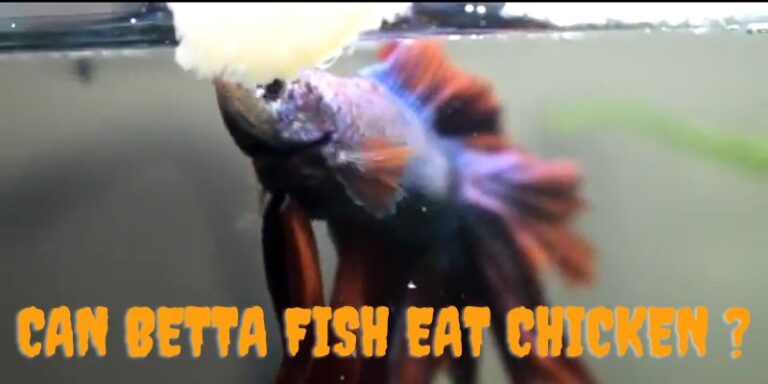

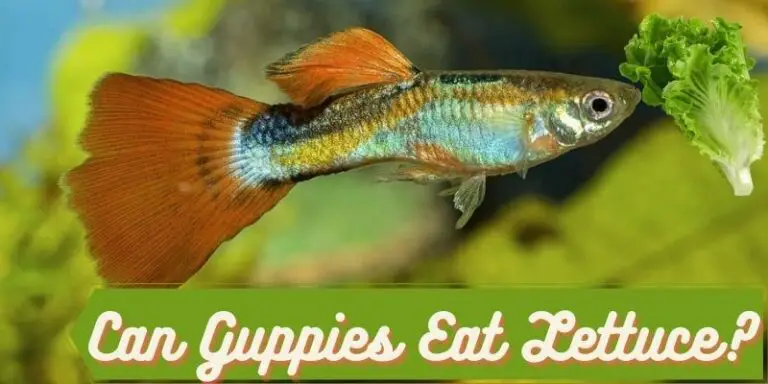
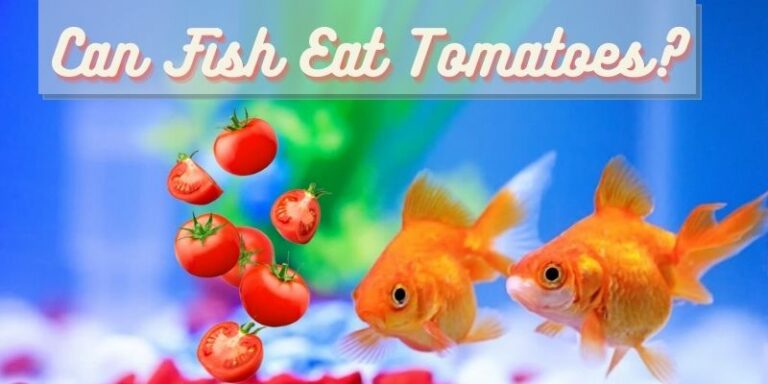
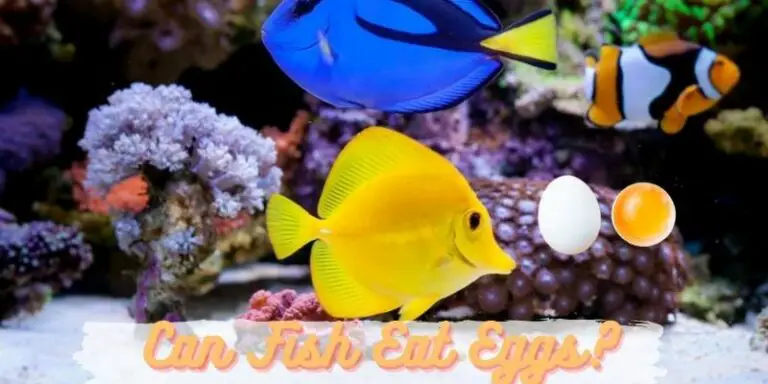
![Can Angelfish Eat Pellets? [Dangerous or Safe?]](https://fishcaring.com/wp-content/uploads/2022/07/Can-Angelfish-Eat-Pellets-768x384.jpg)

